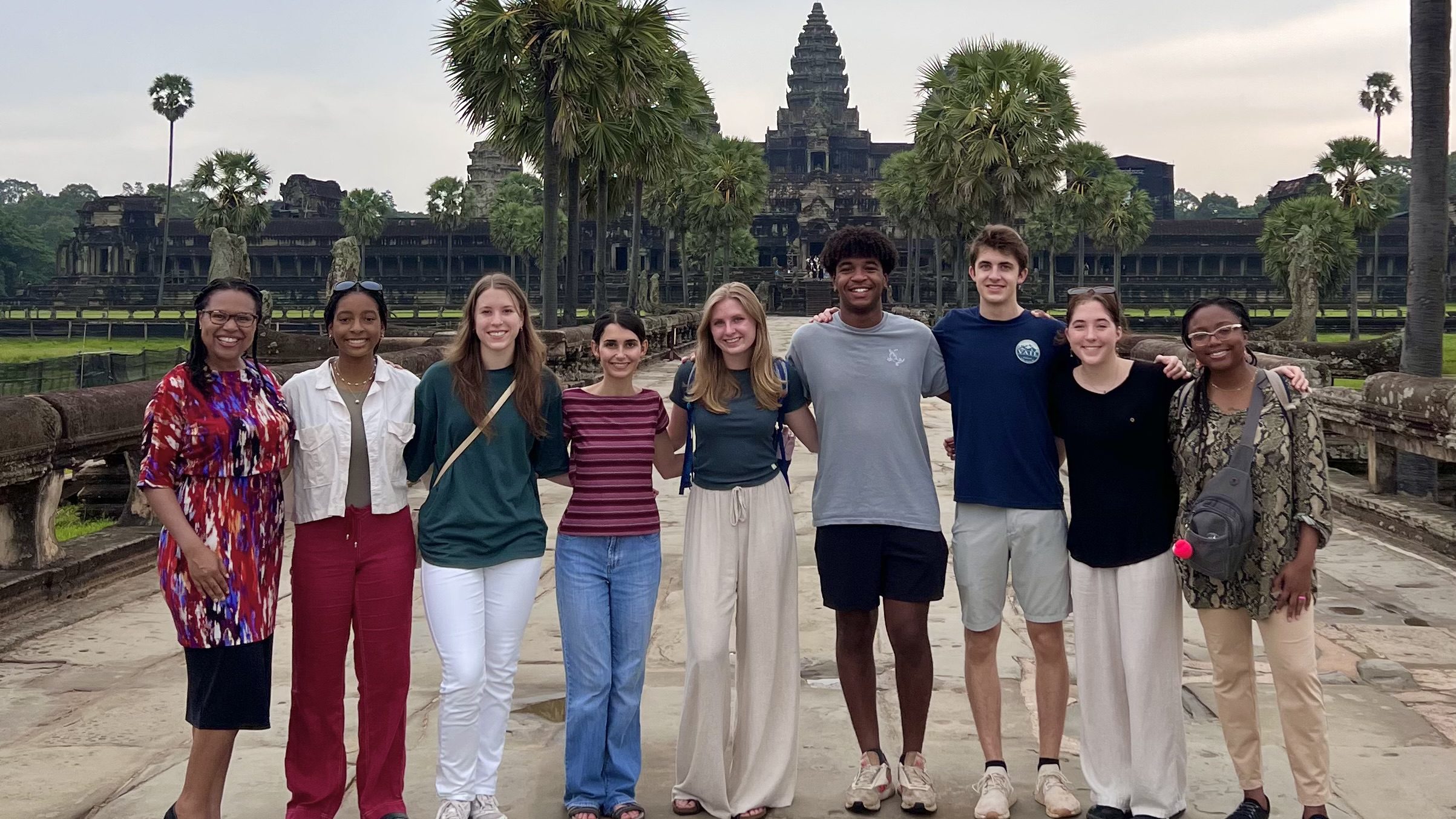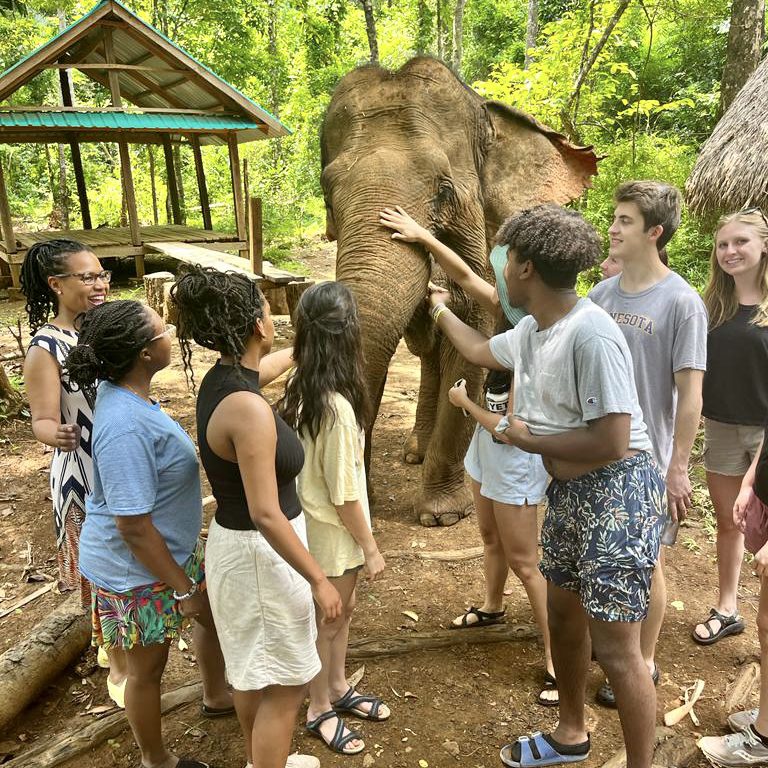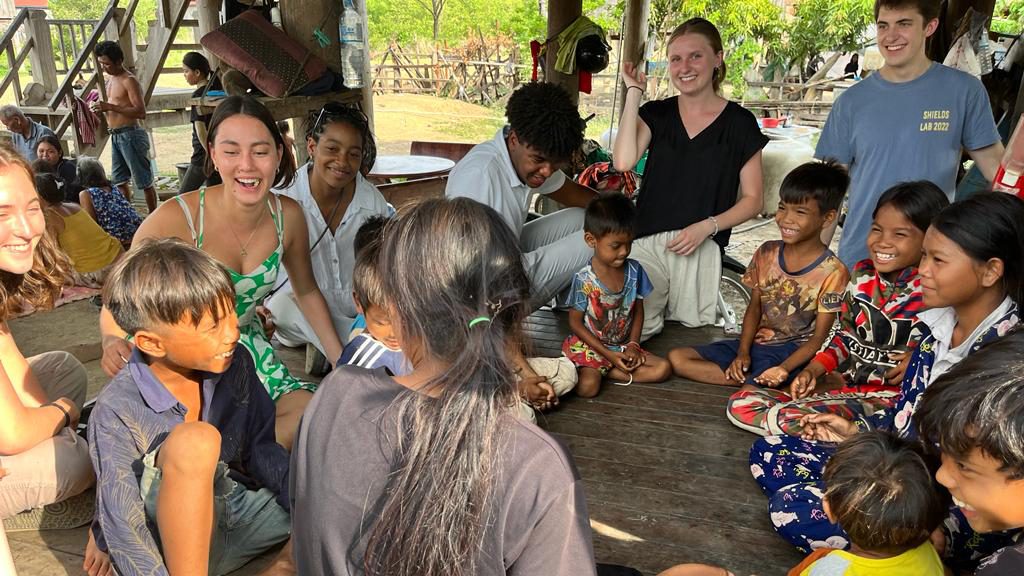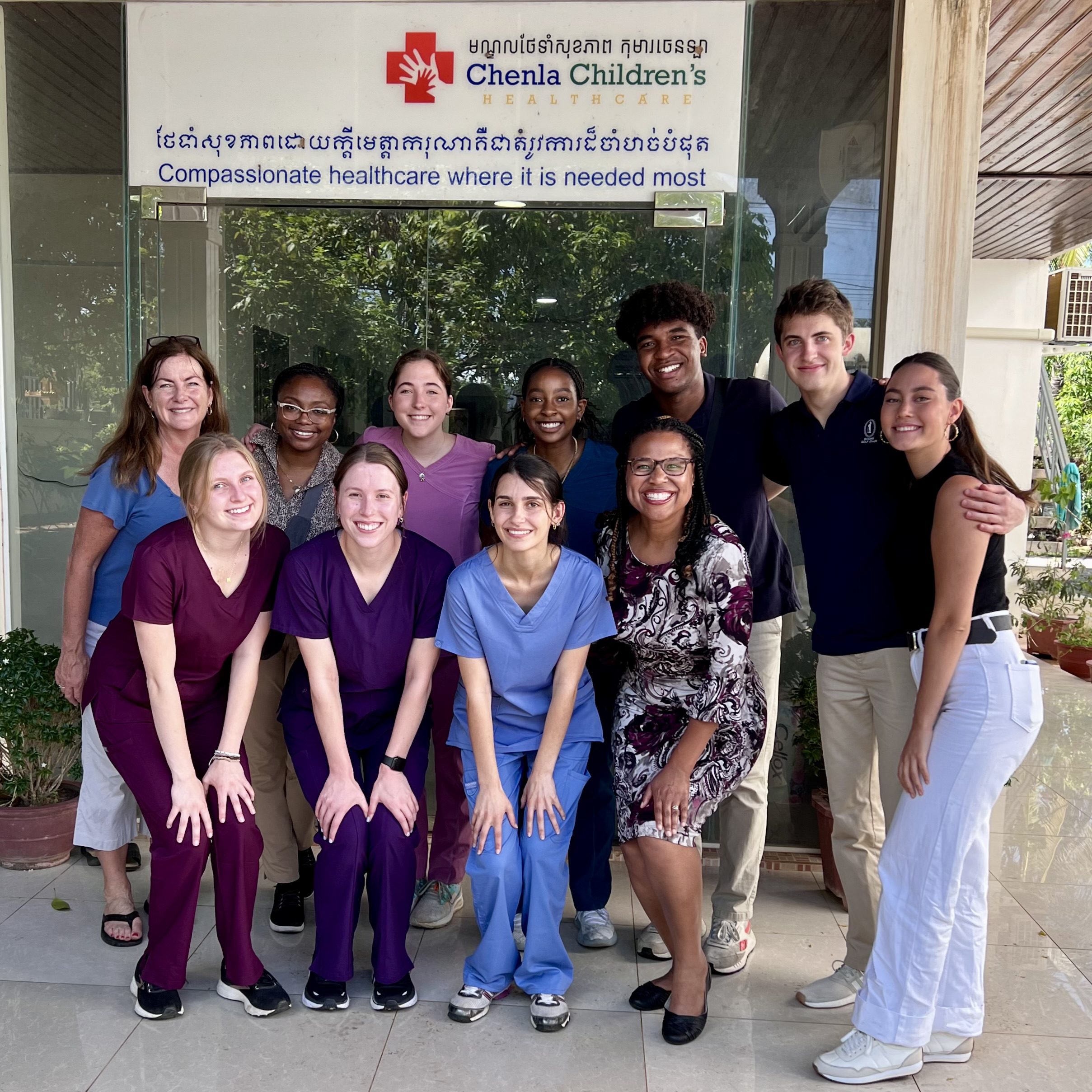In Cambodia, health care and ‘the human side of people’

An unfamiliar health care system. A different culture. Even a village-dwelling elephant.
These and other extraordinary experiences awaited Furman students in Cambodia as part of a new May Experience study away course.
“It was eye-opening in every way possible,” Natalie Huber ’25 said upon returning to home. “I’ll definitely be thinking about it for years to come.”

The group visits with an elephant in Mondulkiri.
The course, Health & Medicine in the Global Context: Cambodia, was developed in partnership with Furman’s Institute for the Advancement of Community Health and Dr. Lori Housworth ’91, a physician and 2023 recipient of Furman’s Gordon L. Blackwell Alumni Service Award.
For three weeks, eight students explored health careers in Southeast Asia and learned about differences between the two health care systems, said Shaniece Criss, an associate professor of health sciences.
Students shadowed clinicians, attended classes, kept observation journals, and produced a paper comparing the health care systems.

Students play a game with Cambodian children during a health education outreach activity.
The course also provided other valuable lessons, such as cultural competency, that will help students in their careers, Criss said.
“People come from all sorts of different backgrounds,” she said. “They (students) learn to check their assumptions at the door and to be very open to listening to what patients are saying.”
Huber said it was an amazing opportunity to see a culture completely different from her own.
“It put a lot into perspective,” she said.
At some government hospitals, Huber said, there were no mattresses or air conditioning, and parents brought hammocks to sleep outside their children’s rooms.
Among Huber’s memorable experiences was seeing patients with vaccine-preventable diseases rarely seen in the U.S. and malnutrition resulting from a lack of education.
“There was a woman who brought in her six-month-old, who weighed 6 pounds because the mother only fed her sweetened condensed milk,” she added. “She didn’t have time for breast feeding because she had to work and baby formula is expensive.”
The experience encouraged her to think about the whole person, Huber said, leaving her more open and understanding – skills that will serve her well anywhere.
The students were hosted by Drs. Lori and Bill Housworth, American physicians who’ve lived in Cambodia since 2008. They work at Chenla Children’s Healthcare, a pediatric hospital established as part of a public-private partnership they started in 2016 after years of seeing the need firsthand.

Second row, from left: Dr. Lori Housworth ’91, Redman, Cook, Woollery, Echekki, Crumpler and Housworth’s daughter, Rachel Housworth ’25. First row, from left: Huber, Simmons, Locklear and Criss.
The Housworths have opened three of these hospitals around the country and also travel to other locations where they train staff, provide supplies and treat patients, she said. While there are government hospitals, she said, the care is lacking.
The course was designed to give students a chance to see health care in a developing country as they’re choosing what to do with their lives, she said.
“When I was at that stage, I didn’t even know what was out there,” she said.
One day, the students visited a village at the edge of the jungle where families lived in about 15 homes on wooden stilts, Housworth said. One seriously ill woman was lying on a wooden bed under the house, she said, while some children played nearby.
“We want (students) to see the human side of people … and the contrast between the rich and the poor,” she said. “It was a little bit of a shocker to them.”
Working with the students was a joy, Housworth said.
“They were so inquisitive and had boundless energy,” she said. “Their perspective taught me some things too.”
The students also enjoyed some “amazing” cultural events, Criss said, including a trip to a museum about the Khmer Rouge, a tour of Angkor Wat and other colorful temples, and an encounter with a friendly elephant.
“Most importantly, our group was there to learn about the challenges to health and well-being outside the United States,’’ Criss said. “We saw cases of extreme poverty and a limited medical infrastructure, as well as cases of quality care. We hope it motivates our students to engage in culturally appropriate change to improve people’s well-being.”
Huber said she went into it as a psychology major knowing she wanted to work with children, but now she’s now considering a career as a pediatric physician assistant.
“This was a perfectly unique opportunity for me to explore my interests,” she said.